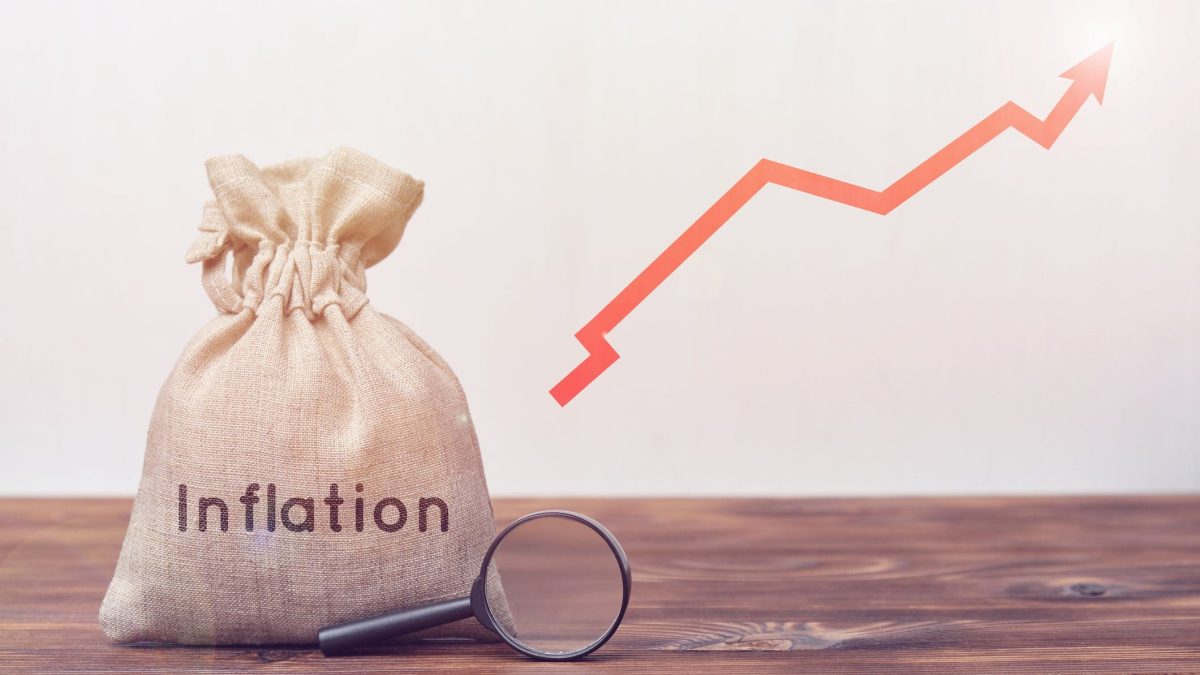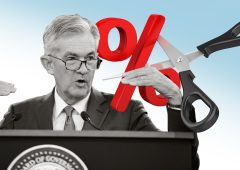US Inflation Data Shows Annual Increase, Core Prices Cool
15.01.2025 16:08 1 min. read Alexander Zdravkov
US inflation data revealed an annual increase of 2.9% in December, up from 2.7% in November, according to the Bureau of Labor Statistics (BLS).
The figure aligned with market expectations, while monthly inflation rose by 0.4%, following a 0.3% uptick in the prior month. Core inflation, which excludes food and energy, grew by 3.2% year-on-year, slightly below both November’s 3.3% and analysts’ forecasts. On a monthly basis, core inflation increased by 0.2%.
The release of these figures had an immediate impact on financial markets. The US Dollar Index (DXY) slipped below the 109.00 mark, hitting new multi-day lows in response to the data.
Earlier projections had anticipated December’s CPI to rise by 2.9% annually and core inflation to hold steady at 3.3%. Analysts suggested the report might reinforce the Federal Reserve’s current stance on monetary policy, with no immediate rate adjustments expected at the January meeting.
The Federal Reserve’s December meeting minutes highlighted concerns over persistent inflationary pressures. Officials noted potential challenges posed by shifts in trade and immigration policies, which could complicate efforts to control inflation and shape the broader economic outlook. Analysts at TD Securities had predicted a slight decline in core inflation due to falling goods prices, potentially offset by rising housing costs. The December CPI figures seem to affirm a steady but cautious inflationary trend heading into the new year.
-
1
Trump Targets Powell as Fed Holds Rates: Who Could Replace Him?
27.06.2025 9:00 2 min. read -
2
U.S. PCE Inflation Rises for First Time Since February, Fed Rate Cut Likely Delayed
27.06.2025 18:00 1 min. read -
3
Key U.S. Economic Events to Watch Next Week
06.07.2025 19:00 2 min. read -
4
Gold Beats U.S. Stock Market Over 25 Years, Even With Dividends Included
13.07.2025 15:00 1 min. read -
5
U.S. Announces Sweeping New Tariffs on 30+ Countries
12.07.2025 16:30 2 min. read
US Inflation Heats Up in June, Fueling Uncertainty Around Fed Cuts
U.S. inflation accelerated in June, dealing a potential setback to expectations of imminent Federal Reserve rate cuts.
Gold Beats U.S. Stock Market Over 25 Years, Even With Dividends Included
In a surprising long-term performance shift, gold has officially outpaced the U.S. stock market over the past 25 years—dividends included.
U.S. Announces Sweeping New Tariffs on 30+ Countries
The United States has rolled out a broad set of new import tariffs this week, targeting over 30 countries and economic blocs in a sharp escalation of its trade protection measures, according to list from WatcherGuru.
Key U.S. Economic Events to Watch Next Week
After a week of record-setting gains in U.S. markets, investors are shifting focus to a quieter yet crucial stretch of macroeconomic developments.
-
1
Trump Targets Powell as Fed Holds Rates: Who Could Replace Him?
27.06.2025 9:00 2 min. read -
2
U.S. PCE Inflation Rises for First Time Since February, Fed Rate Cut Likely Delayed
27.06.2025 18:00 1 min. read -
3
Key U.S. Economic Events to Watch Next Week
06.07.2025 19:00 2 min. read -
4
Gold Beats U.S. Stock Market Over 25 Years, Even With Dividends Included
13.07.2025 15:00 1 min. read -
5
U.S. Announces Sweeping New Tariffs on 30+ Countries
12.07.2025 16:30 2 min. read


